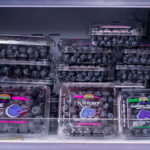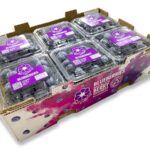U.S.: Boycott threatens Driscoll's supplier

An NGO has received 10,000 signatures from consumers petitioning for a boycott of Driscoll's berries, calling on the multinational to suspend purchases from supplier Sakuma Brothers Farms until it gives workers a fair contract and "dignified working conditions". 
In the petition, Oregon-based Fair World Project said it was deeply troubled by Driscoll's partnership with the Washington State operation.
"For several years Familias Unidas por la Justicia has been attempting to negotiate a fair and legally binding contract with Sakuma Brother's [sic] that protects their basic rights and provides fair wages. Their situation is so dire they have been forced to call for a boycott and at the same time you have increased purchases from them," the petitioners said.
"The new growing season is coming up and we are writing to ask that you terminate your purchases from Sakuma Brothers until they in good faith negotiate a legally binding contract and Familias Unidas por la Justicia calls an end to the boycott.
"Although we appreciate the opportunity to purchase fresh berries year-round from a trusted brand, we will not continue to support Driscoll's if you continue to support farmworker abuse."
However, an industry insider told www.freshfruitportal.com the boycott was part of a broader movement that merely served to disincentivize growers from playing by the book when it came to hiring foreign labor.
"Operators of visibly large operations like Bryan Sakuma, like Miles Reiter [Driscoll's owner] are really doing things the right way, to have a functional system of H-2A visas to bring in foreign workers," he said.
"Here with Sakuma you have a Japanese family that's been in the business for generations, who were sent to internment camps during World War II, were not given their land back and started again - now they want to bring in overseas labor but a group connected to the United Farm Workers (UFW) doesn't like that and claims they don't want to hire local people.
"Then others claim they don't want to hire foreign workers. There are a lot of groups protesting against Sakuma, and what all these groups have in common is that they have no idea what they’re talking about. It’s really sad."
The insider described a previous instance where people had picketed at the Sakuma operation as "more like a pot fest than an actual protest".
"What's not being talked about is the workers who don’t get to work because of the disruptions from these protests. Because of all this the Sakumas' business has recoiled. It has an effect on the economy and Sakuma is not harvesting as much fruit.
"What about the farms that actually aren't doing the right thing? It's so hard to bring in workers from abroad, and what happens when they do it legally? They get punished. That's the travesty.
"The end message to growers becomes 'don't do H-2A, don't do the right thing, stay under the radar'.
In a release, the Fair World Project said local boycotts of Sakuma's own branded berries had been so successful that farmworkers reported packaging fresh berries increasingly for Driscoll's.
"Farmworkers are exempt from many of the labor laws that safeguard other workers. To ask them to do some of the most difficult and dangerous work for poverty wages without laws or a binding contract to protect them is unconscionable," Fair World Project campaign director Kerstin Lindgren added.
"The labor of skilled farm workers at Sakuma Berry Farms is helping to make the agricultural corporation Driscoll's profitable, now Driscoll's can do its part by demanding Sakuma management sit down and negotiate with us," Familias Unidas por la Justicia president Ramon Torres said.
At the time of writing, neither Driscoll's, Sakuma or Familias Unidas por la Justicia had responded to requests for comment on the issue.
Photo: www.shutterstock.com













































